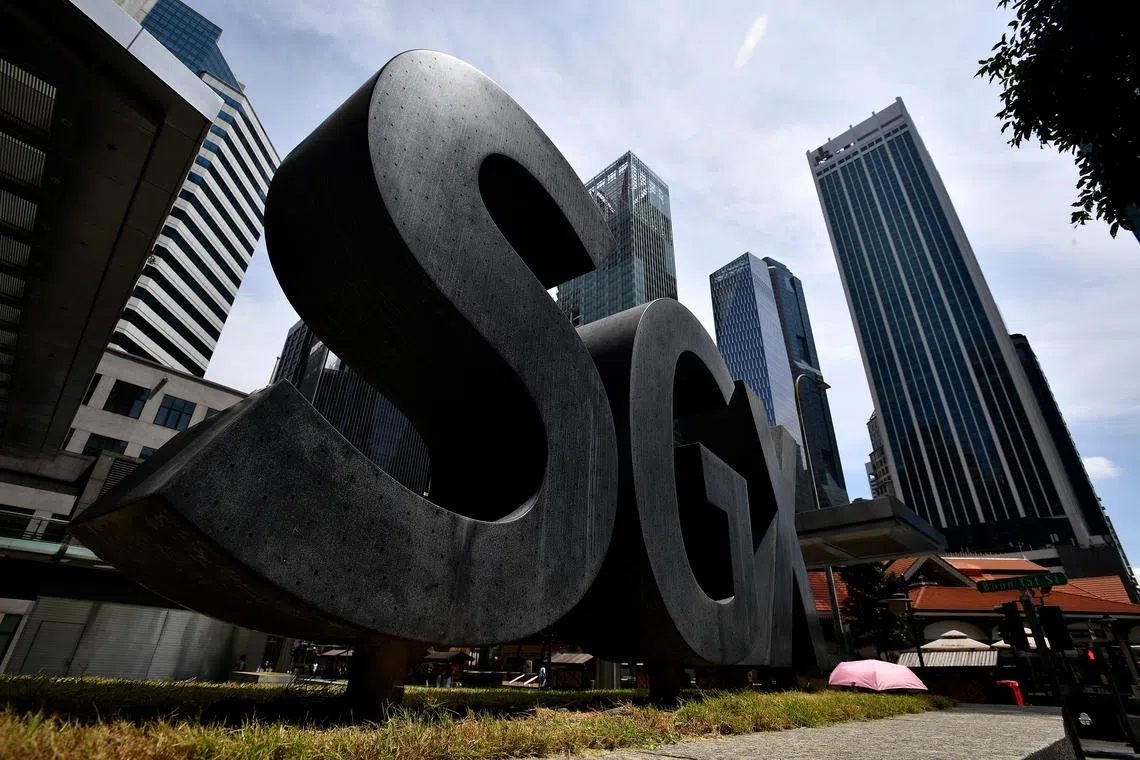Singapore stocks end higher; STI gains 0.6% as Wall St closes its best month in over a year
Sign up now: Get ST's newsletters delivered to your inbox

The benchmark Straits Times Index gained 0.6 per cent or 17.32 points to 3,090.31 but was down 0.2 per cent for the week.
ST PHOTO: LIM YAOHUI
Tan Nai Lun
Follow topic:
SINGAPORE – Local shares began the run-in to the festive season on the right note on Dec 1, although bourses in the region did not fare so well.
The benchmark Straits Times Index (STI) gained 0.6 per cent, or 17.32 points, to 3,090.31, but was down 0.2 per cent for the week.
Across the broader market, gainers outpaced losers 300 to 273 on trade of one billion shares worth $898 million.
Venture Corp was one of the top advancers, rising 3.9 per cent to $13.02. The tech manufacturer said on Nov 30 that it plans to buy up to 10 million of its ordinary shares under a buyback plan authorised by the board on Nov 29.
Golden Agri-Resources was active in the broader market, with 9.9 million shares changing hands, although the counter closed flat at 26.5 cents.
The palm oil company joined the STI reserve list on Nov 30, following the December quarterly review. Stocks on the list replace any constituent shares that become ineligible as a result of corporate actions before the next review.
Key regional indexes had mixed trading, despite November being Wall Street’s best month in over a year. The Nikkei 225 and Australian indexes both fell 0.2 per cent, while the Hang Seng was down 1.3 per cent and the Kospi slipped 1.2 per cent. Bursa Malaysia gained 0.3 per cent.
SPI Asset Management managing partner Stephen Innes noted that November has set a positive tone for risk assets, amid a more favourable inflation trajectory, an easing job market and expectations of interest rate cuts.
“The crucial question now revolves around the timing of policy adjustments, raising concerns about whether the central bank might act too early or too late in response to these economic developments,” he added.
Mr Innes saw “no reason” to pare back expectations for rate cuts in 2024, although he conceded that the market’s dovish tilt in November may have caused some asset prices to overshoot. THE BUSINESS TIMES

